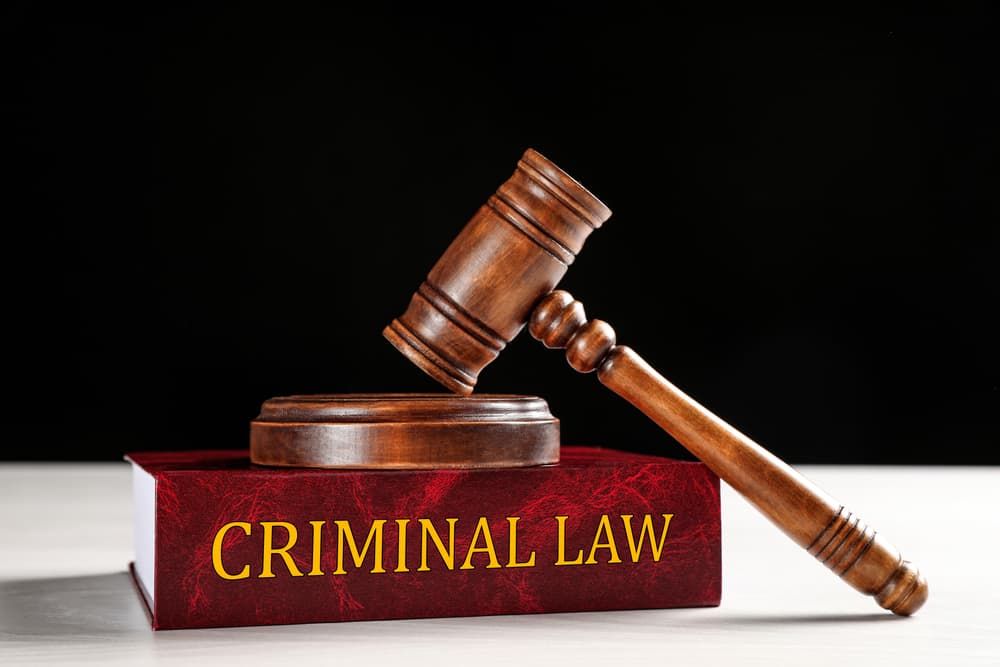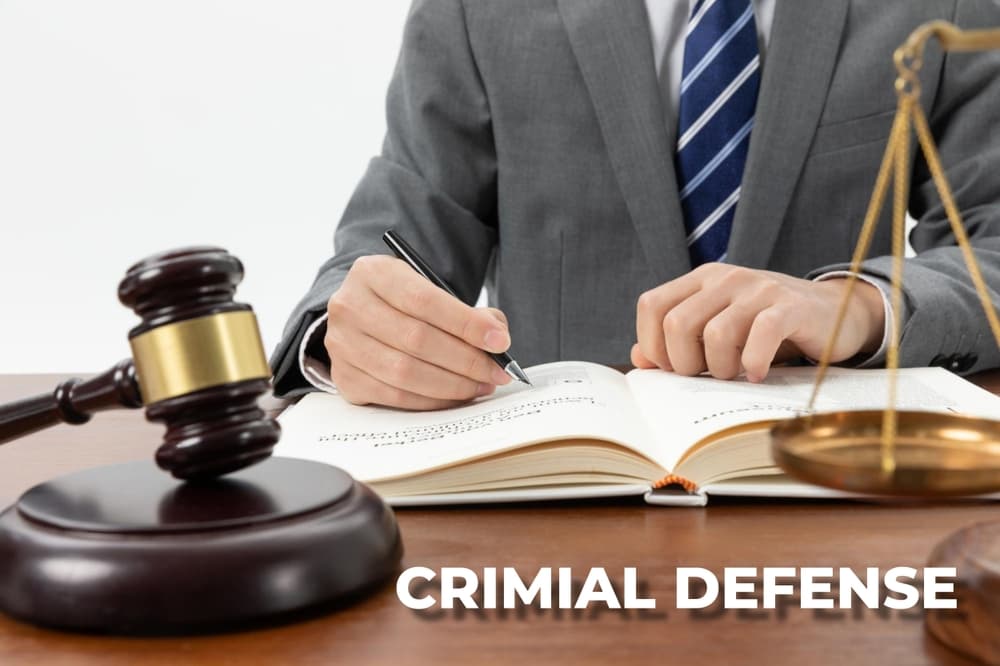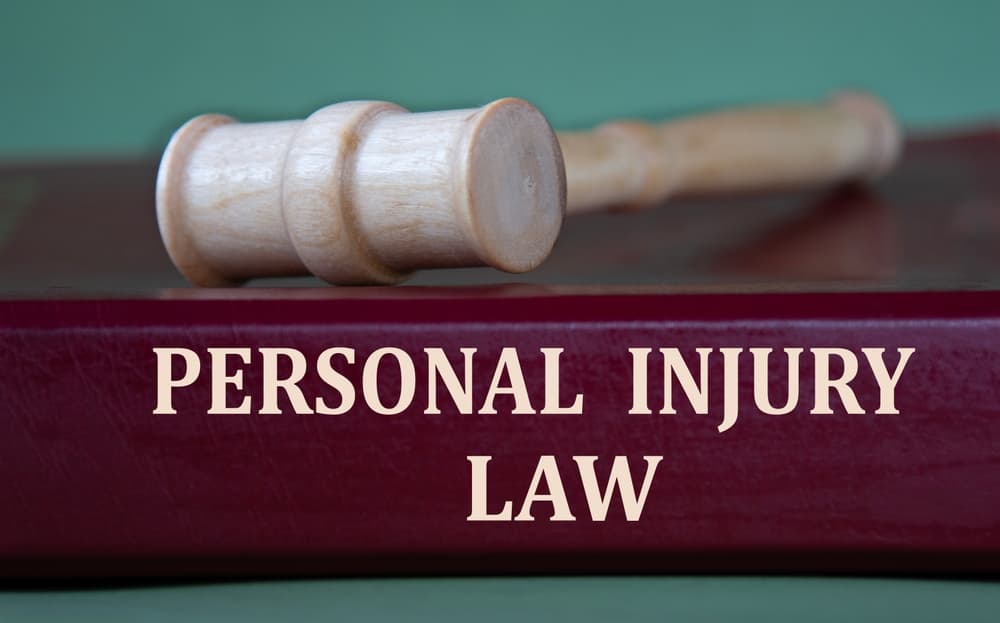An Abilene criminal defense lawyer is your dedicated legal advocate, focused on protecting your rights within the criminal justice system. They serve as your shield against unjust accusations, voice in court proceedings, and guide you through the complex legal maze.
From challenging evidence and negotiating with prosecutors to developing robust defense strategies, a criminal defense attorney works tirelessly to safeguard your freedom, reputation, and future.
In Abilene and San Angelo, they navigate local courts, leverage their understanding of Texas law, and use their experience with local law enforcement and judicial systems to mount the strongest possible defense on your behalf.
The Role of a Criminal Defense Attorney

Criminal defense attorneys defend individuals and companies charged with criminal conduct. In Abilene and San Angelo, this could range from misdemeanors like simple assault or DWI to more serious felonies such as drug trafficking or homicide.
Key Responsibilities
- Legal Representation: Your attorney stands beside you in court, speaking on your behalf and ensuring your voice is heard.
- Case Analysis: They thoroughly examine the details of your case, looking for inconsistencies or violations of your rights.
- Evidence Evaluation: Your attorney scrutinizes all evidence, challenging its validity when necessary.
- Negotiation: They may negotiate with prosecutors for reduced charges or alternative sentencing options.
- Trial Preparation: If your case goes to trial, your defense lawyer prepares a robust defense strategy.
- Sentencing Advocacy: Even in cases resulting in conviction, your attorney advocates for fair sentencing.
The Importance of Local Knowledge: Abilene and San Angelo Focus
You need an attorney familiar with local courts and procedures when facing criminal charges in Abilene or San Angelo. David M. White's practice is deeply rooted in the West Texas justice system, offering invaluable insights into local legal nuances.
Key Local Institutions
- Abilene Police Department
- Taylor County Detention Center
- Taylor County Sheriff's Office
- Taylor County District Attorney's Office
- Abilene Municipal Court
- Taylor County Courthouse
Understanding the dynamics of these institutions can significantly impact case outcomes. For instance, knowing the tendencies of local judges or the Taylor County District Attorney's office's policies can inform your defense's strategic decisions.
Common Criminal Cases in Abilene and San Angelo
Criminal defense lawyers in West Texas handle a wide range of cases. Here are some common types:
- DWI/DUI: Driving while intoxicated (DWI) is a serious offense in Texas, with potential consequences including license suspension, fines, and jail time. Someone accused of multiple DWI offenses may face more severe penalties.
- Drug Offenses: From possession to distribution, drug charges can carry severe penalties in Texas.
- Assault and Battery: Depending on the circumstances and injuries involved, these charges can range from misdemeanors to felonies.
- Theft Crimes: Including shoplifting, burglary, and robbery, these offenses can have long-lasting impacts on your record.
- White Collar Crimes: Fraud, embezzlement, and other financial crimes require a nuanced defense approach.
- Domestic Violence: These sensitive cases often involve complex family dynamics and require careful handling.
Strategies in Criminal Defense

Every case is unique, but here are some common strategies a criminal defense attorney might employ:
- Constitutional Violations: Your attorney will examine whether law enforcement respected your constitutional rights during the arrest and investigation. Did the police read you your Miranda rights? Was the search and seizure legal? Violations can lead to evidence suppression or case dismissal.
- Alibi Defense: If you were elsewhere when the alleged crime occurred, your attorney will work to establish a solid alibi, potentially using witness testimony or electronic records.
- Challenging Evidence: Your attorney may question the reliability of eyewitness identifications, challenge the chain of custody for physical evidence, or contest the validity of forensic testing.
- Plea Bargain: In some cases, negotiating a plea deal might be in your best interest. Your attorney will work to secure the most favorable terms possible.
- Self-Defense or Necessity: In certain cases, your actions might be justified as self-defense or out of necessity. Your attorney will help establish the circumstances that support this defense.
- Lack of Intent: Some crimes require proof of intent. Your attorney may argue that you didn't have the necessary criminal intent while an act occurred.
Expunction and Criminal Record Clearing: A Fresh Start
For many people who have encountered the criminal justice system in Abilene, San Angelo, or elsewhere in Texas, the impact can linger long after the case is closed. Even if charges were dismissed or you were found not guilty, the mere existence of an arrest record can affect your life in numerous ways.
This is where expunction, also known as expungement, comes into play. As a criminal defense attorney, David M. White can help eligible individuals clear their criminal records, offering a chance for a fresh start.
What is Expunction?
Expunction is a legal process that removes arrests and certain criminal offenses from your record. When a record is expunged, it's as if the arrest or charge never occurred - legally speaking, you can deny its existence on job applications, housing applications, and other situations where you might face questions about your criminal history.
Who is Eligible for Expunction in Texas?
In Texas, you may qualify for an expunction if:
- You were arrested but never charged with a crime.
- Your case was dismissed.
- You were acquitted (found not guilty) at trial.
- You were convicted of a crime but later pardoned.
- You completed certain types of deferred adjudication for Class C misdemeanors.
- You were convicted of certain misdemeanors as a minor.
Not all criminal records are eligible for expunction. Texas, for example, generally does not allow the expungement of felony convictions.
The Expunction Process
The process of expunging a record in Texas involves:
- Determining eligibility.
- Filing a petition for expunction with the appropriate court.
- Attending a hearing (in some cases).
- If granted, ensuring all relevant agencies destroy or return records related to the arrest or charge.
How Criminal Defense Differs from Other Legal Practices
Criminal defense is a unique area of law that sets itself apart in several ways:
- Stakes Are Higher: Unlike many civil cases where the outcome is often financial, criminal cases can result in loss of freedom, heavy fines, and long-lasting consequences on one's record.
- Burden of Proof: In criminal cases, the prosecution must prove guilt "beyond a reasonable doubt," a higher standard than in civil cases.
- Constitutional Protections: Criminal defense heavily involves constitutional law, particularly the Fourth, Fifth, and Sixth Amendments.
- Emotional Intensity: Criminal cases often involve high emotions and personal stakes, requiring attorneys to provide legal and emotional support.
- Rapid Pace: Criminal cases can move quickly, especially in the initial stages, requiring attorneys to think and act swiftly.
- Public Perception: Criminal defense attorneys often face public scrutiny or misunderstanding about their role in upholding justice.
Criminal Defense vs. Personal Injury: A Comparison

While David M. White handles both criminal defense and personal injury cases, and these areas of law differ substantially:
Criminal Defense
- Focuses on defending against criminal charges.
- Involves state or federal prosecutors.
- Potential outcomes include acquittal, conviction, or plea deals.
- Penalties can include jail time, probation, and fines.
- Emphasizes protecting constitutional rights.
Personal Injury
- Deals with civil wrongs causing harm or injury.
- Involves private parties (usually an injured person vs. an at-fault party or insurance company).
- Outcomes typically involve monetary compensation.
- Focuses on proving negligence and extent of damages.
- Often involves negotiation with insurance companies.
Common Myths about Criminal Defense: Debunking Misconceptions
When it comes to criminal defense, there are many myths and misconceptions that can cloud people's understanding of the legal process. Let's address and debunk some of these common myths:
Myth: Criminal Defense Attorneys Defend Guilty People
The role of a criminal defense attorney is to ensure that every accused person receives a fair trial and that their rights are protected, regardless of guilt or innocence. The U.S. justice system presumes everyone is innocent unless proven guilty. Many people who police arrest or charge are innocent, while they may overcharge others may or their charges may not accurately reflect the situation.
Myth: If You're Innocent, You Don't Need an Attorney
Without proper representation, innocent people can and do get convicted. An experienced criminal defense attorney can protect your rights, ensure the authorities follow proper procedures, and present your case effectively.
Myth: Pleading Guilty Is Always the Best Option if You're Guilty
Even if you believe you're guilty, consult an attorney before making any decisions. Your lawyer might employ legal defenses you don’t know about, or you may qualify for charge reduction or alternative sentencing that an experienced attorney can negotiate.
Myth: Criminal Defense Attorneys Can Guarantee Outcomes
No ethical attorney can guarantee a specific outcome in a criminal case. The legal process involves many variables. A good attorney will work hard to achieve the best possible outcome but should never promise specific results.
Myth: You Only Need an Attorney if Your Case Goes to Trial
An attorney is valuable at every stage of the legal process, from arrest through potential appeals. Early intervention can often lead to better outcomes, including the possibility of charges being reduced or dropped before trial.
Understanding these realities can help you make more informed decisions if you face criminal charges in Abilene or San Angelo.
Long-Term Consequences of Criminal Charges
Criminal charges can result in long-term consequences that extend far beyond the courtroom:
- Employment Opportunities: Many employers conduct background checks, and a criminal record can limit job prospects.
- Housing: Landlords often run background checks, potentially affecting your ability to rent.
- Education: Some educational institutions may deny admission based on criminal history. You may also lose your scholarship.
- Professional Licenses: Certain professions require clean criminal records to obtain or maintain licenses.
- Personal Relationships: Criminal charges can strain family relationships and friendships.
- Travel: Some countries may deny entry to individuals with criminal records.
- Firearm Rights: Certain convictions can result in losing your right to own firearms in Texas.
Impact of Criminal Charges on Immigration Status

The severe consequences of criminal charges extend beyond the immediate legal penalties for non-citizens in the Abilene and San Angelo areas.
- Deportation/Removal: Certain criminal convictions can make a non-citizen deportable, even if they are a lawful permanent resident (Green Card holder).
- Inadmissibility: Some convictions can make it impossible to reenter the U.S. after traveling abroad or to adjust one's status to become a lawful permanent resident.
- Loss of Eligibility for Citizenship: Criminal convictions can make a person ineligible for naturalization, sometimes permanently.
- Mandatory Detention: Some charges require that Immigration and Customs Enforcement (ICE) take the person into custody.
How Criminal Charges Affect Different Immigration Statuses
- Undocumented Immigrants: Any interaction with law enforcement increases the risk of discovery by immigration authorities.
- Visa Holders: Criminal charges can lead to visa revocation and removal from the country.
- Green Card Holders: Certain convictions can result in loss of permanent resident status and deportation.
- Asylum Seekers: Criminal convictions can bar a person from asylum.
A knowledgeable attorney like David M. White understands how criminal law intersects with immigration law and can strategize accordingly. Your attorney can negotiate plea deals that minimize immigration consequences, sometimes pleading to offenses that don't trigger deportation or inadmissibility. They can also work alongside immigration attorneys to ensure a comprehensive approach to your case.
Remember, if you're a non-citizen facing criminal charges in Abilene or San Angelo, inform your attorney about your immigration status immediately. This information is protected by attorney-client privilege and is essential for developing the most effective defense strategy.
Contact the Law Offices of David M. White: Your Advocate in Difficult Times
Facing criminal charges can be one of the most challenging experiences of your life. But remember, you don't have to face it alone. A skilled criminal defense attorney like David M. White is your advocate, protector, and guide through the complex legal system.
If you're dealing with criminal charges in Abilene, San Angelo, or the surrounding areas of West Texas, don't wait to seek legal help. Your future may depend on the actions you take today. Contact the Law Offices of David M. White to discuss your case and start building your defense.
In the eyes of the law, you're innocent until proven guilty, and a strong legal defense can make all the difference in protecting your rights and your future. Call our Abilene office at (325) 437-3311 or reach us in San Angelo, TX, at (325) 221-4421, or contact us online.
